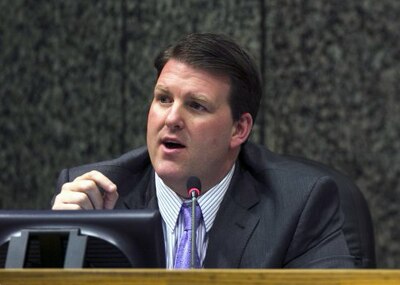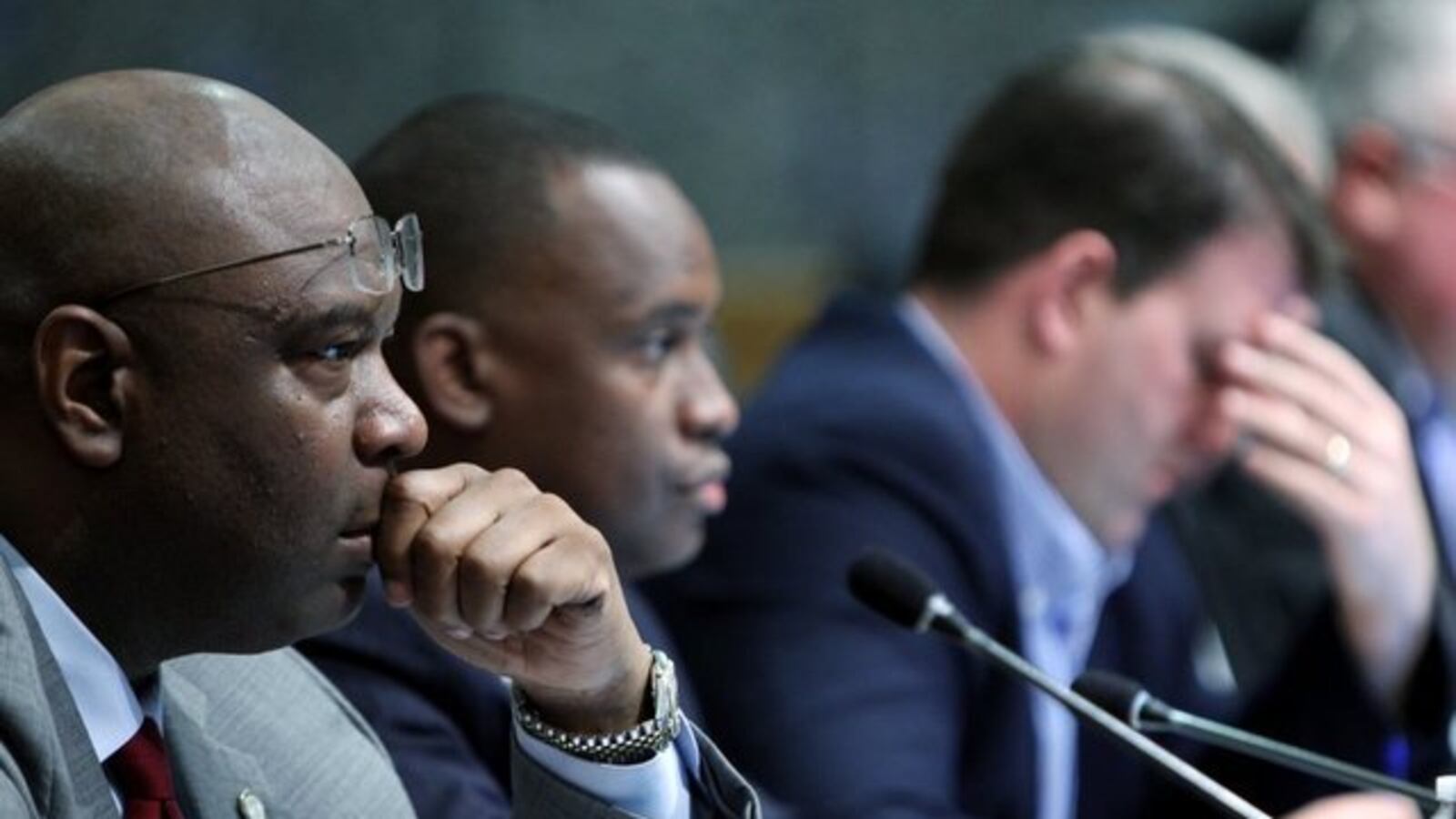Just as students have begun taking Tennessee’s new standardized test, Shelby County officials are calling on state leaders to back off of using those scores to evaluate teachers.
The Shelby County Board of Commissioners, the local funding body for Memphis schools, voted unanimously on Monday to urge the state to use TNReady results as only a “diagnostic” tool. Currently, the board says, state scores are being used as a punitive evaluation of both teachers and students.
The board’s call gets to the heart of a debate that has lingered since a 2010 state law tied standardized test results to teacher evaluations. That was several years before TNReady was introduced last year as a new measuring stick for determining how Tennessee students — and their teachers — are doing.
TNReady testing, which began this week and continues through May 5, has intensified that debate. The new test is aligned to more rigorous academic standards that Tennessee is counting on to improve the state’s national ranking.
But Shelby County’s board is questioning whether reforms initiated under Tennessee’s 2010 First to the Top plan are working.
“While giving off the appearance of a better education, this type of teaching to the test behavior actually limits the amount of quality content in deference to test taking strategies,” the board’s resolution reads.
The board also cites “unintended consequences” to the teaching profession as nearly half of Tennessee’s 65,000 teachers are expected to leave or retire in the next decade.
“Record numbers of quality teachers are leaving the teaching profession and school districts are struggling to recruit and retain quality teachers due to the TN standards imposed in regards to standardized testing,” the resolution reads.
It’s true that school districts statewide struggle to recruit and retain effective teachers in some subject areas. But there’s little evidence to support that incorporating test scores in evaluations is the primary reason teachers are leaving the profession.
It’s also unlikely that Tennessee will back off of its teacher evaluation model, even as some states have recently abandoned the practice. The model is baked into reforms that the state initiated through two gubernatorial administrations to improve both teacher and student performance.
Want education equity? Make sure your teachers feel valued, say lawmakers

Shelby County’s resolution was introduced by Commissioner David Reaves, a former Memphis school board member who says he hears a “continual outcry” from teachers and parents over high-stakes testing.
“Allow the local (school district) to assess and classify teachers and use the test results as a tool, not as a stick,” Reaves told Chalkbeat.
In Tennessee, test scores in some form count for 35 to 50 percent of teachers’ evaluation scores. TNReady scores currently count 10 percent but, as the state settles into its new test, that will gradually increase to 25 percent by 2018-19.
Classroom observations and evaluations did play a factor in retention rates for effective teachers in a 2014 study by the Tennessee Department of Education before the transition to TNReady. Where teachers reported consistent and objective classroom observations, effective teachers were more likely to stay.
State and local teacher surveys also differ on the quality of Tennessee’s teacher evaluation system known as TEAM, which mostly relies on classroom observations.
In Shelby County Schools, exit surveys show issues like levels and stability of teacher pay — not test scores in their evaluations — are cited most often by teachers leaving the district.
Superintendent Dorsey Hopson told the school board last month that most Shelby County teachers find the state’s evaluation system unfair, but the same majority think their own score is fair.
Another survey by the Tennessee Department of Education suggests that satisfaction with the state’s evaluation system is on the rise as teacher feedback continues to be incorporated.
The Shelby County board, which oversees funding for Tennessee’s largest district, is sending its resolution to Gov. Bill Haslam, Education Commissioner Candice McQueen, and the Tennessee General Assembly. Below is the full text:

